The 25th
LaureateMusic
Plácido Domingo
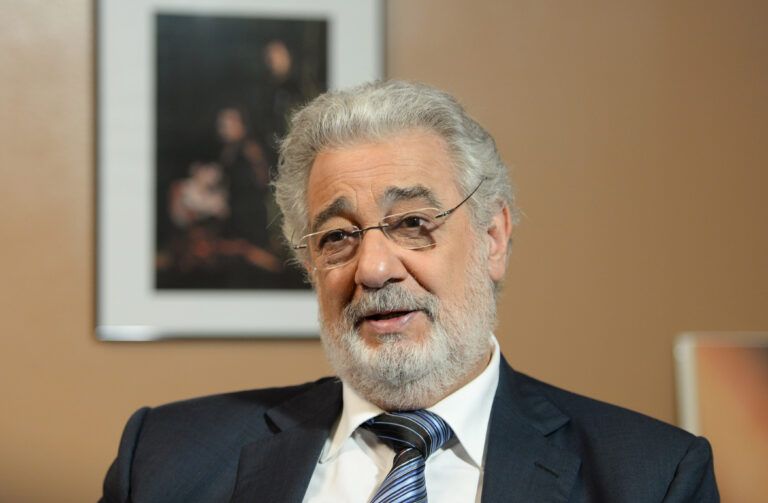
Plácido Domingo is one of the world's best known and respected tenors. He was born into a musical family – his Spanish parents were zarzuela performers who moved the family to Mexico when Domingo was only eight years old. From an early age,he appeared on stage as a child actor in his parents' zarzuela company,laying down the foundations for his career as one of the most influential singing actors in opera.
Domingo enrolled in Mexico City's Conservatory of Music to study piano and conducting but soon he was encouraged to focus on singing. He made his debut at eighteen and played his first lead role,Alfredo in La Traviata,when only twenty. He spent three seasons with the Israel National Opera before moving to the United States. He has performed at all the world's major Opera houses and has a huge repertoire of 150 roles.
In 1990,on the eve of the World Cup Final in Rome,the beauty of opera was introduced to a completely new global audience when he joined with José Carreras and Luciano Pavarotti to create the Three Tenors.
This July he was hospitalized for a while because of illness. Nevertheless,with a personal motto of "If I rest,I rust," Domingo continues to perform as an actor singer – both as tenor and baritone,as conductor and as General Director of Los Angeles Opera. He is also fully involved with encouraging the development of the next generation through a variety of projects,including Operalia,an annual international opera competition that he founded in 1993.
Biography
Among the tenors of the world,he towers above the rest in singing techniques,acting ability and emotional expressions: justifiably,Plácido Domingo is called "The King of Opera." Yet,while he has toured the world as a singer,he has also been conducting opera and working as the General Director of the Los Angeles Opera.
Domingo was born in Spain and moved to Mexico when he was eight. His parents were zarzuela performers – performers in the national music theater of Spain – and he appeared on stage with in their zarzuela's company as a child actor. He is thankful for his childhood experiences,saying,"I owe much to zarzuela and my parents." Later he entered Mexico City's Conservatory of Music where he initially studied piano and conducting but was encouraged to focus on singing,once his vocal talents were recognized.
He began his international career in Israel and after several seasons moved to the New York City Opera and made the USA his home. Though young,within a relatively short time,he became internationally renowned,performing to much acclaim in the major opera houses of the world such as the Vienna State Opera,the Metropolitan Opera,La Scala,and the Royal Opera House.
In 1990,on the eve of the World Cup Final in Rome,Domingo joined with José Carreras and Luciano Pavarotti to create The Three Tenors. Their concerts contributed enormously to expansion of opera fans globally; demystifying and popularizing an art form that many had considered inaccessible.
On stage he has performed an amazing 150 different roles – a considerable feat for any musical actor. Yet,he keeps studying,saying,"I feel like I'm still a student. I always feel that I have to carry sheets of music with me,so I can keep on practicing." Even when he experiences ill health,he says,"I can stand any hardship because I have surging passion. I do not mind traveling on planes. As long as I can sleep well and have a good rest,I can sing."
In addition to his work as actor,singer and conductor,Domingo also works enthusiastically to help the next generation fulfill their potential. He founded Operalia in 1993,an annual international opera competition,that has helped start the careers of many young singers,such as Erwin Schrott and Rolando Villazón.
Domingo had been greatly affected by the 1985 earthquake in Mexico City and when he toured Japan in April 2011,just after the Great East Japan Earthquake,he sang a song in Japanese,Furusato (Home): moving and impressing an emotional audience. He said that by doing so,he wanted to express his condolences to the Japanese victims.
At 72,he still has a young sounding and beautiful voice and has further extended his range by including baritone roles into his repertoire recently. In October he will be on stage in Japan,and he will not only be performing as an opera singer but he will also be acting as a cultural ambassador for his native Spain; celebrating 400 years of Japan/Spain relationships.
Chronology
-
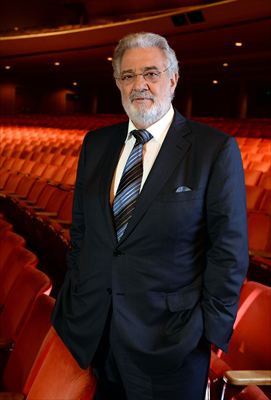
At the Los Angeles Opera
-
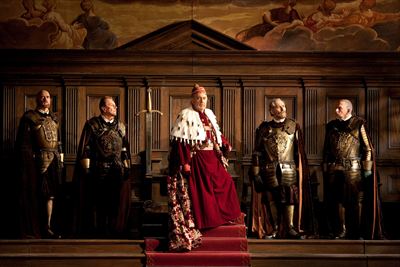
Simon Boccanegra
-
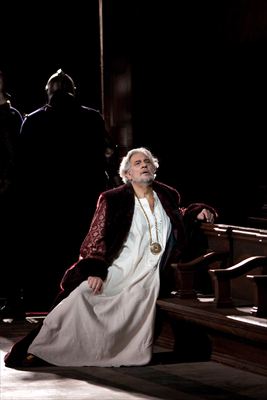
Simon Boccanegra
-
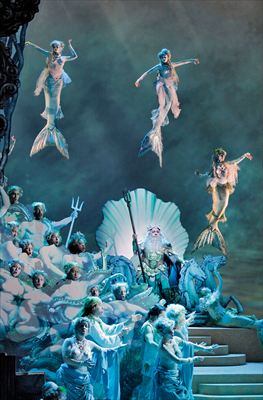
The Enchanted Island
-
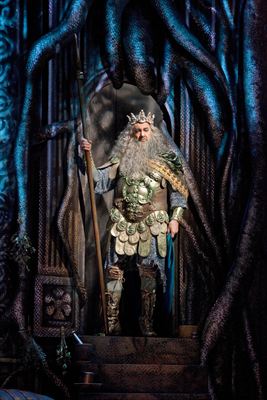
The Enchanted Island
-
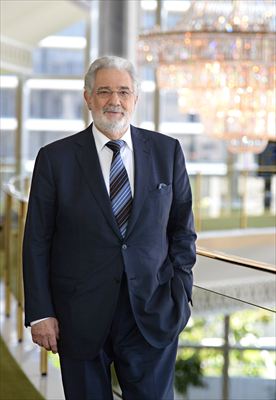
At the Los Angeles Opera
